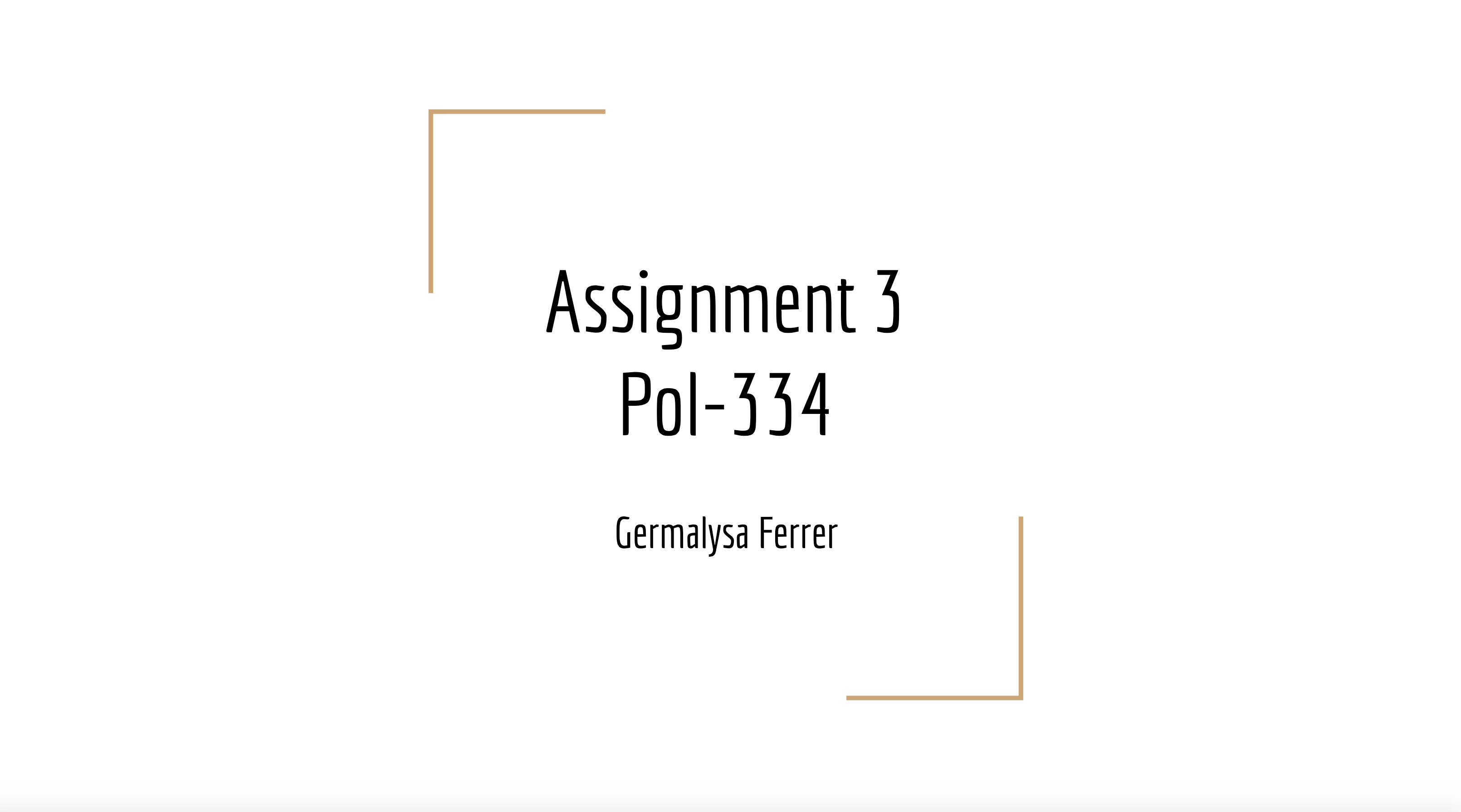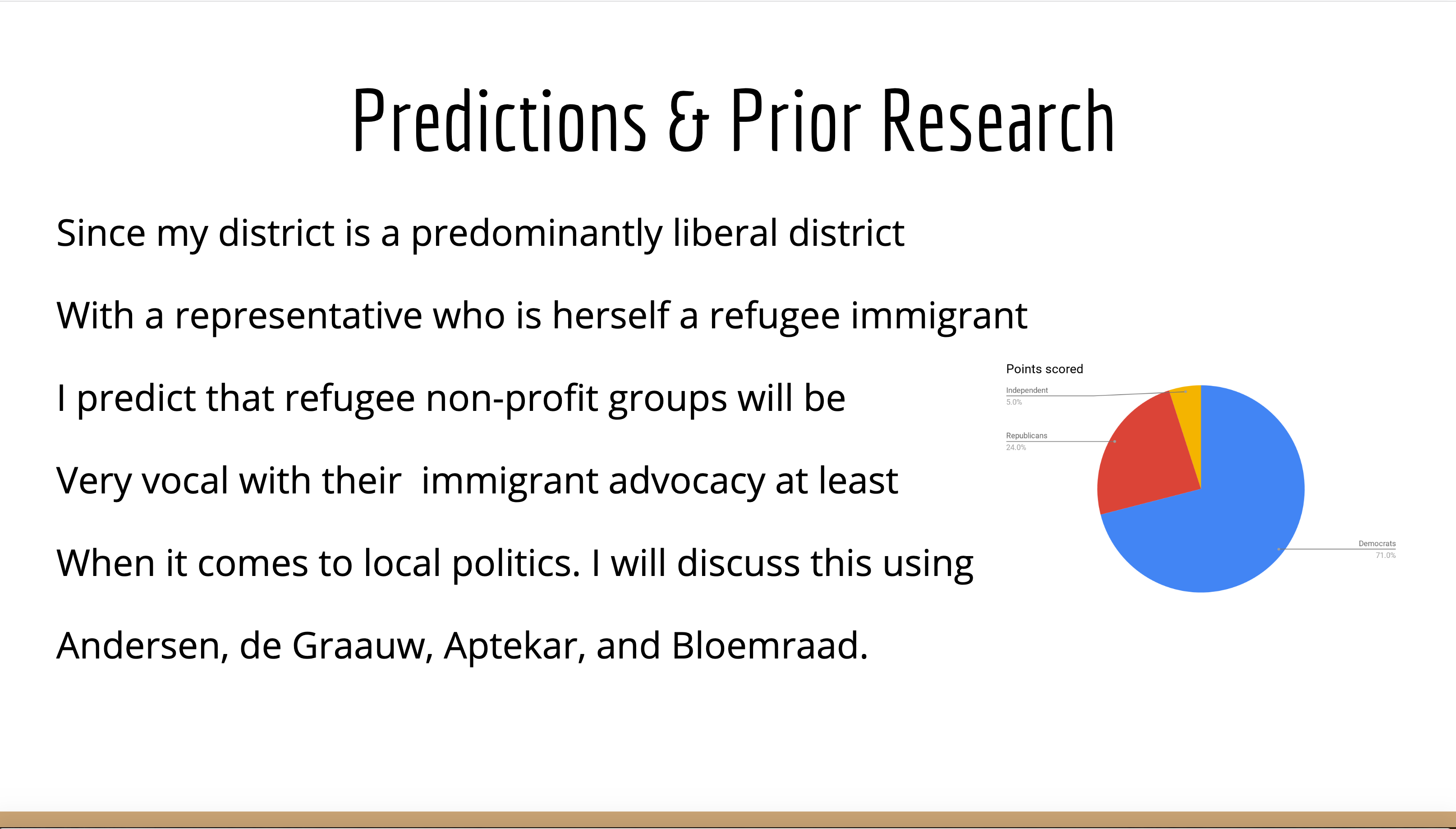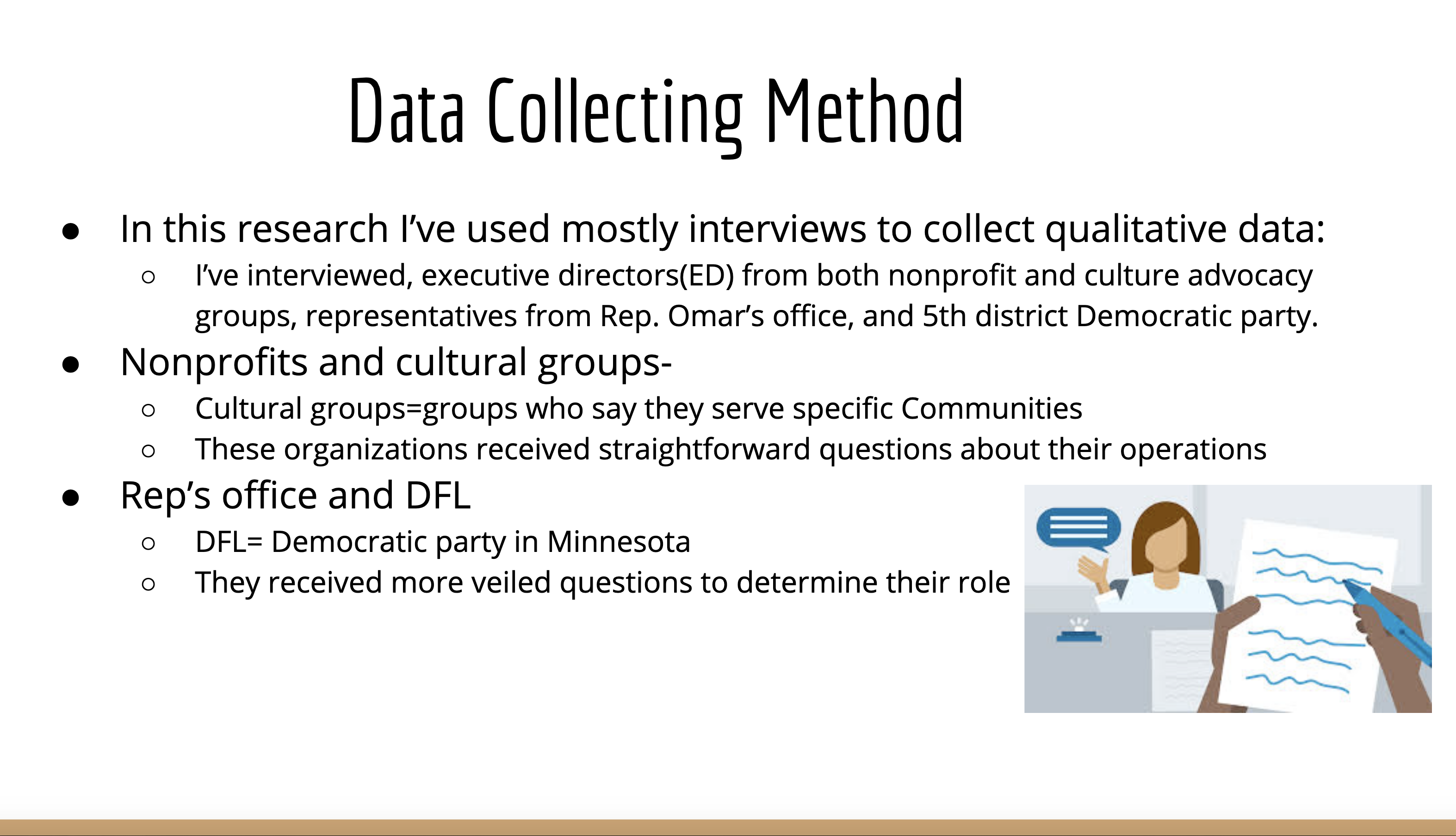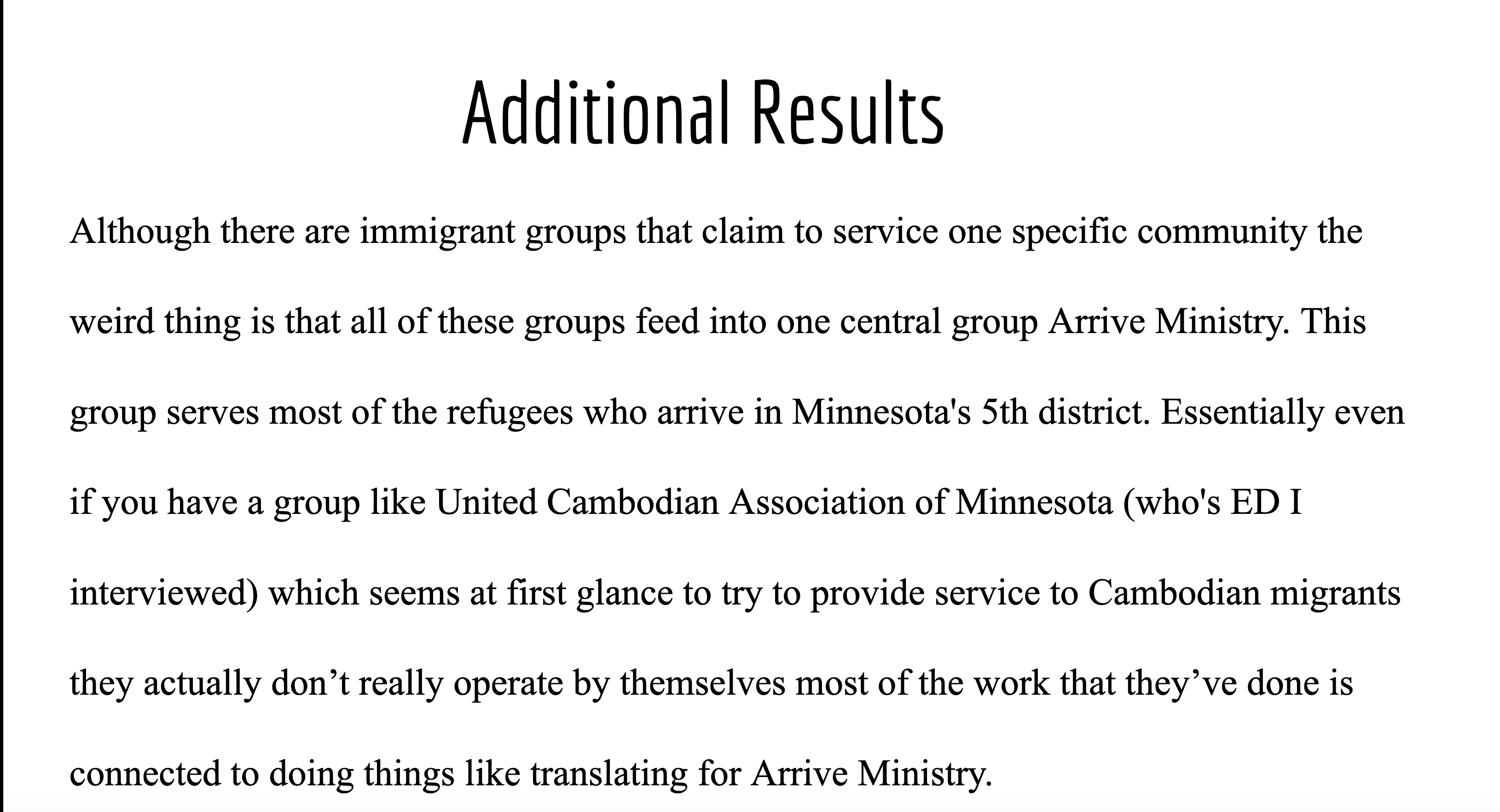

Since the fifth congressional district of Minnesota is an urban liberal hotspot for refugee settlement in my research I wanted to measure refugee integration. In this paper I define integration as political activity, rights gained, and groups serviced who come back. I wanted to focus on the roles on the role that non-profit groups and cultural groups (groups who are supposed to target one type of immigrants)designated to help refugees, play in terms of advocating for their refugee constituents.I also wanted to measure whether or not refugees would be as politically involved as suggested by Irene Bloemraad due to the privileges and rights afforded by their refugee status( which aren’t allowed to other non-resident/citizen immigrants). Rather or as suggested by Aptekar it would be a much more complex story where despite a great density of support immigrant/refugee groups and services integration doesn’t necessarily translate into political power. Since my congressional district like San Francisco is urban and has “a liberal political culture” I expected or predicted that the refugee nonprofits in my congressional district would at least be politically active locally. de Graauw in her paper “ Nonprofit organizations: agents of immigrant political incorporation in Urban America” talks about the roles non-profit refugee centered organizations play into advocating for refugees on the local levels for urban cities like San Francisco without necessarily interacting with national or governmental institutions. I wanted to test how true this was especially since my district’s representative herself is a refugee immigrant.

My research contained of both short and long interviews with the executive director of one of Minnesota’s biggest refugee settlement non-profits, Several small cultural groups the communications director of Minnesota’s Democratic party office, and a representative from congresswomen Ihan Omar’s office. My interviews with the communications director of the DFL(Democratic party for the 5th district ) and the representative the congresswoman’s office were the shortest interviews and I was encouraged to email with questions rather than call. During these calls I asked much broader questions about wanting to learn about immigration with the 5th district. My longest calls was definitely with the executive director and even the receptionist of Arrive Ministry the local non-profit that handles refugee settlement. During these calls I asked more specific questions about the demographic breakdowns of the populations they serviced and the ways in which they addressed different populations needs. In terms of experimental limitations I really wonder whether or not asking more direct questions of party representatives would have lead to longer interviews.

However, despite the briefness of the first two interviews(5-10 minutes) I learned that essentially even the dominant political party within the state defer most of the integration of refugees to Arrive Ministry the local refugee non-profit as predicted by Anderson. From the medium length(20-30 minutes) interviews with cultural groups like the United Cambodian Association of Minnesota I learned that again a lot of the work is deferred to the largest local non-profit. Although, these programs do have things like daycare and elderly care much of advocacy aspect of immigration services and even things like legal help are handled by local nonprofits. Now although there were a small number of groups who seemed to be vocal advocates for immigrant rights who had protest pictures on their websites, I wasn’t able to secure any interviews with them. That said my longest interview which lasted approximately an hour long was with Arrive Ministries executive director Bob oehrig revealed a lot. He informed me of the necessity and therefore informal advocacy for refugees. Due to Minnesota’s aging population the refugees that are resettled in Minnesota play a vital role in the local economy and Mr.Oehrig even went on as far as to say more refugees were needed. His agency provides almost everything from necessary legal services to lessons on how to take the bus. One of the most important things that Mr. Oehrig pointed out was economic status when it came to civic participation. He said that while some refugees do come back and help and even go on to gain power within the district, he argues that most refugees especially first generation refugees face large economic burdens including sending money back home. Therefore despite the resources available to them, most simply cannot afford to be politically active.

From my research I can conclude that non-profit refugees in Minnesota’s 5th congressional district play a vital role in refugee integration in terms of providing them with resources as suggested by de Graauw. However, despite these resources being made available a lot of these refugees simply are not as poised to gain power as they should theoretically be as proposed by Bloemraad. However, they are not completely shut off from political power if they please to as suggested by Aptekar, evidentiary by some refugees like representative Omar gaining political power. Therefore from my research, I ‘ve concluded that non-profit organizations are vital to refugee and immigrant integration into my CD. However, such integration though it may lead to social integration , it may not lead to political integration or success not because of demographic or political beliefs, but rather because of everyday economic struggles faced by the first generation refugees and immigrants within my congressional district.